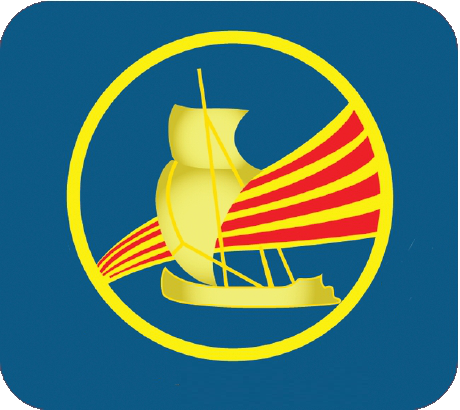PREAMBLE
The Civil War broke the peaceful coexistence of thousands of people. My great grandparents had to live through three horrifying years, during which blood was spread across the fields. Then, they had to flee, crossing the Pyrinees and getting into a country in which they were treated like animals. They became stateless as they belonged to nowhere. The country’s slogan Liberté, egalité, and fraternité was totally forgotten, as far as the Catalan refugees were concerned.
JOAN VIDAL VILLALBÍ
May 1938
The fascist troops were taking Catalan villages, since they had broken the Republican territory in two after conquering the maritime town of Vinaròs. They had nearly arrived at Amposta, on the right side of the Ebro river. Hence, all the people had to run away and hide in country huts in the neighbouring mountains. My step grandma went to her house in the village of La Galera by cart, so as to catch some of her belongings because she knew she was leaving home and not going back for a long time.
My grandfather sent her camufled inside a medicine box with all the documents of the local casino and a letter saying her goodbye just in case they couldn’t meet again.
Two days after the Battle of the Ebro ended, on 15th November 1938, when we arrived at the border between France and Catalonia we were cruelly separated. My dad was sent to Garoña and mum, my sister and I to the city of Rennes, in the east of Brittany.
February 1939
We arrived at Rennes on a convoy of refugees. There were a large number of people, walking, crying, screaming. I didn’t understand what was happening because I was so young, but I knew that something was going wrong. I saw that mum was worried, as I could see sadness in her eyes. My mother met some refugees, and made a ‘’friend’’, she didn’t consider her ‘’her friend’’ because in that situation you could get on well with anybody. That woman told her that she was from Brittany and spoke Breton. She used to live in Rennes when they turned this place into a concentration camp. There were beautiful, colorful houses where people used to live happily, <>.
A week after my grandfather was given a certificate that proved that he was a Republican Refugee and he could meet with us at the Rennes concentration camp.
In May of the same year, dad was allowed to move and join us. We were happy that we were together but that happiness ended too soon. In September, dad was transferred to Vieux-vy-s and we were transferred to Argelers-sur-mer, near the Catalan border.
Not long after, I got ill of pneumonia and was interned in an infirmary. As you probably have deduced I didn’t have much fun and finally one day, mom told me that when I would recover, we would be able to leave the concentration camp and to live in Bellegarde in Chateâu street where my brother Paco was living and working as a baker.
February 1940
A commissary granted dad permission to leave the concentration camp and to get free. Finally we were reunited, the whole family together. Not long after, my grandfather passed away in the town of Beaucaire. I became very upset, but I knew that he was finally resting in peace, after all he did for the Republic, for our country and for us.



